Nuclear fusion: New initiatives outlined at IAEA's FEC 2023 conference
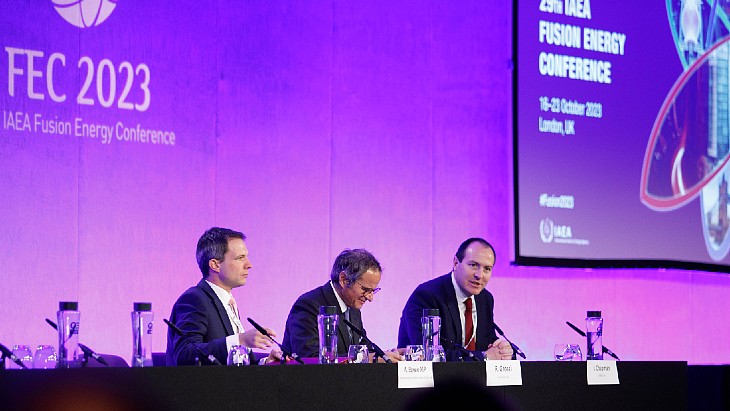
The event, being held in the UK for the first time since 1984, was opened by International Atomic Energy Agency Director General Rafael Mariano Grossi who began by wishing a "happy 40th anniversary" to the soon-to-close JET ( the Joint European Torus), "the first tritium experiment in Europe, breaker of scientific records, producer of generations of accomplished scientists and engineers, and a true magnet for international collaboration".
He outlined some of the breakthroughs and achievements by fusion experts over the two years since the previous conference was held and said current momentum and enthusiasm made it a "crucial moment in the development of the field" saying fusion was moving "out of the laboratories and experimental centres", with credible pathways needed to achieve the ambition of bringing fusion energy to the economy.
As part of this, the IAEA plans to create the World Fusion Energy Group, bringing together scientists and engineers, policymakers, financiers, regulators and civil society as the "next leg of the fusion energy journey will get us from experiment to demonstration to commercial fusion energy production". Ahead of their first meeting next year, he said he would "shortly invite fusion experts to work with the IAEA to outline Fusion Key Elements such as fusion-related definitions, characteristics and criteria for fusion energy to help develop common understanding among stakeholders essential for global deployment".
During the opening session of the six-day conference in London, the first edition of the World Fusion Outlook was published, with the IAEA saying they intend it to be a regular publication providing "authoritative information and updates on fusion energy" and to become "a global reference for energy R&D, technology development and prospective deployment of fusion as a source of unlimited low carbon energy".
Grossi, who called nuclear fusion energy the "grand engineering endeavour of the 21st Century", said that even if nuclear fusion does not play a big role in meeting the world's climate goals by 2050, "the world will continue after 2050 and it will need clean energy on a massive scale beyond that date" and "while we may have different views on how exactly the global energy landscape will look in the coming years, we all see a place for fusion".
ITER update and UK training plan
One of the issues raised by Pietro Barabaschi, director general of the multinational International Thermonuclear Experimental Reactor (ITER) project in France, was ensuring there was a sufficient, and skilled, workforce for fusion development. The conference heard there had been a need to recruit people who had retired, because of the skills and knowledge they had.
Ian Chapman, CEO of the UK Atomic Energy Authority (UKAEA), said there had been an ageing workforce in the UK ten years ago, but a training push over the past decade meant more than half the workforce was now under 40 - he added that steps had been taken to ensure the experience and knowledge built up over the past decades at JET, which was "like gold dust", would not be lost when it switches to its decommissioning phase at the end of the year.
The UK's Nuclear Minister Andrew Bowie outlined details of the country's Fusion Futures Programme, which he said would see GBP650 million (USD793 million) spent over the next five years on a package of measures, including the creation of 2200 training places, a new fuel cycle testing facility and funding to develop infrastructure for private fusion companies, notably at the UKAEA's Culham campus. He said: "We have a golden opportunity to be at the cutting-edge of fusion and lead the way in its commercialisation as the ultimate clean energy source."
There was much talk of collaboration being key in the future, and Chapman was asked about the UK government's decision not to continue as part of the ITER project. Chapman said the UK was still involved in some work that predated the Brexit-related end of new contracts and said that the UK and ITER had "a lot to offer" and both hoped to continue to collaborate and hoped for success "as soon as possible".
Meanwhile, in his update, Barabaschi said that ITER itself continued to work on the project's revised timeline, which he said was expected to be agreed and announced in mid-2024. The official timeline, agreed in 2016, was for first plasma in 2025 but that is now set to be substantially delayed. He said the timeline update would "not be good news but we will go ahead and we will succeed, I'm very sure about that".
Eurofusion alpha heating announcement
The Eurofusion consortium of fusion laboratories around Europe ran experiments at JET in 2021 designed to explore the extreme conditions - reaching 150 million degrees Celsius - expected at ITER and future fusion plants. Costanza Maggi, a UKAEA Fellow and former JET Task Force Leader, said: "One of our most eye-catching results is the first direct observation of the fusion fuel keeping itself hot through alpha heating. This is the process where high-energy helium ions (alpha particles) coming out of the fusion reaction transfer their heat to the surrounding fuel mix to keep the fusion process going. Studying this process under realistic conditions is crucial to developing fusion power plant."
Eurofusion also said the experiments "confirmed predictions from advanced computer models for heat transport inside the plasma, which are crucial to extrapolate results from current experimental setups to larger future machines like ITER and the demonstration fusion power plant DEMO".
The conference continues until Saturday.
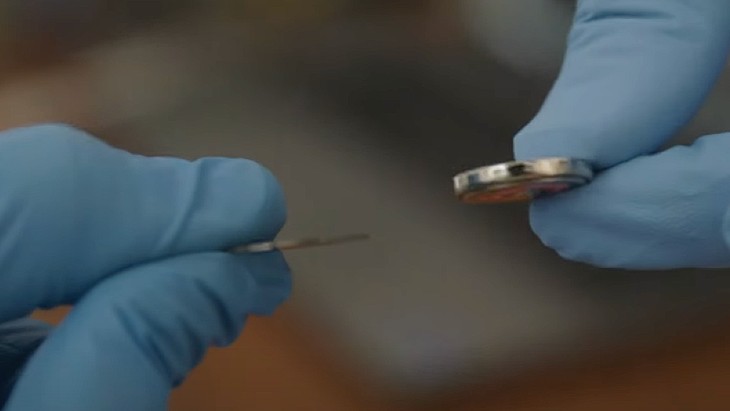
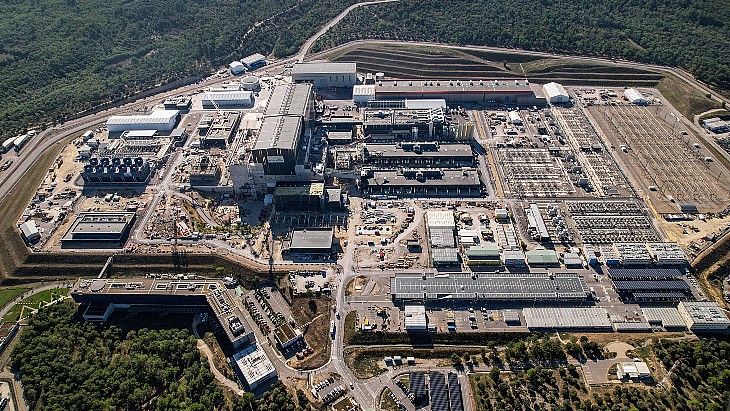
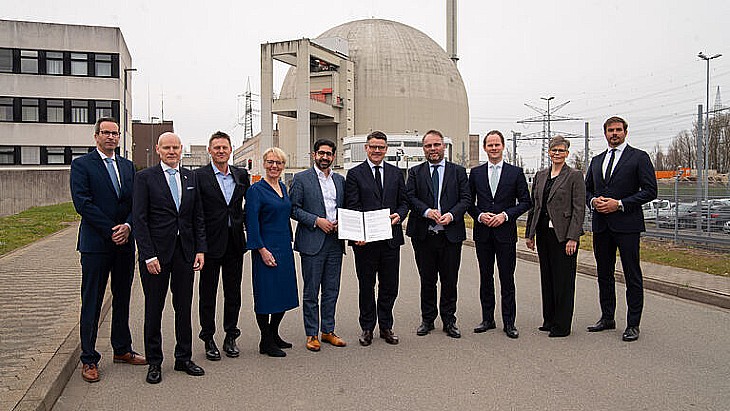
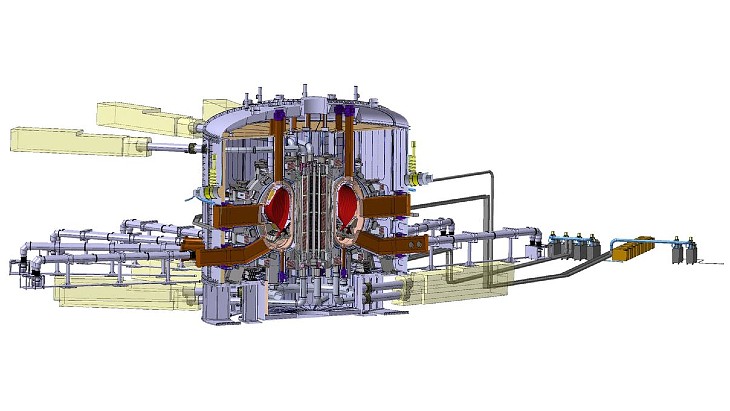






_88592.jpg)

